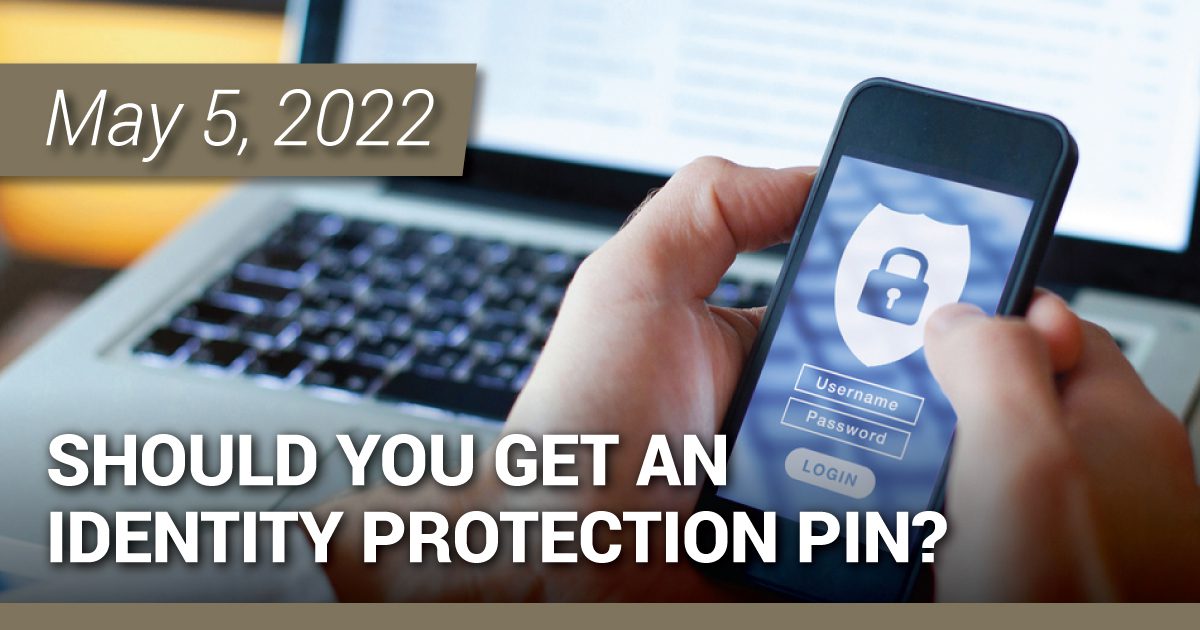Should You Get an Identity Protection Pin?

As identity thieves continue to find ways to report information about individuals falsely, one way to protect yourself from tax fraud is by applying for an Identity Protection Personal Identification Number (IP PIN) from the IRS.
Once the IP PIN is assigned to a taxpayer, and if it is not present when electronically filing a tax return, the IRS will reject the return until the correct IP PIN is added to the filing.
An IP PIN also protects a taxpayer when they’re not required to file a tax return because the IRS will reject any e-filed return that doesn’t contain the taxpayer’s IP PIN.
Taxpayers should request an IP PIN for themselves and their family members when:
- they want to protect their SSN or ITIN from being used for filing fraudulent tax returns,
- they want to protect their dependent’s SSN or ITIN from being used for filing fraudulent tax returns,
- they think their SSN, ITIN, or personal information was exposed by accident, theft, fraud; or
- they suspect or know they’re a victim of identity theft.
Individuals may request an IP PIN using the Get an IP PIN tool on the IRS website. This tool will lead the person through a complete identification check to authenticate their identity before providing an IP PIN.
Once a taxpayer obtains an IP PIN, the IRS will issue the taxpayer a new IP PIN every year in December/January to use for the next tax return filing season. Each year, when a taxpayer receives this letter from the IRS, please forward this letter to us so that we can file your tax returns without rejection.
Please note that there is no way to opt out once an individual is enrolled in the IP PIN program.
